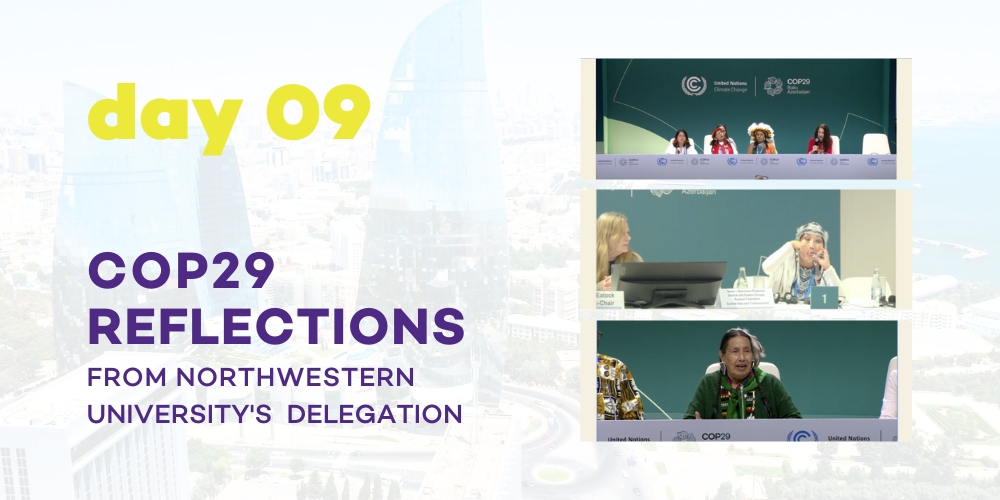Reflections from Northwestern University's COP29 Delegation: Day 9
For a fourth year, a delegation of Northwestern University students and faculty supported by the Buffett Institute is among more than 30,000 researchers, policymakers, industry leaders and activists at the world’s largest annual international treaty negotiations and climate summit, the 29th Conference of Parties (COP29) to the United Nations Framework Convention on Climate Change (UNFCCC), this year hosted in Baku, Azerbaijan. Each day, a different Northwestern delegate is blogging about their experiences and reflections. Day 9 features Mia Perkins, a third-year undergraduate studying economics and international studies.
Ko au te awa, ko te awa ko au (I am the river and the river is me)
Deep beyond mountains of paper and bureaucracy, swimming through rivers of tears and sacrifice, and traversing lands looked at by generations past for generations future, COP29 stands as an opportunity. Countless faces and names filter in and out of frame, clothed in patriotic memorabilia and weighed by the pressing urge for climate action. As I follow along their discussions from Indigenous females in Brazil to Saami reindeer protectionism in Finland at sporadic early hours, this fatigue and pressure is a testament to the drive Indigenous people have brought to these areas.
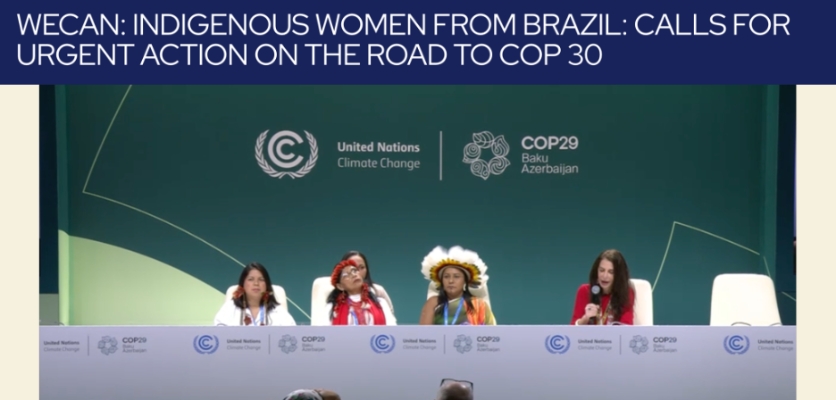
And yet, despite their efforts, a lack of linguistic access, physical occupation and cultural recognition in these spaces has fatigued their rights and land into a catatonic slumber. Press conferences on the online platform have not been afforded interpretation for non-traditional language or for speakers of sign, marginalizing the periphery further. It is a known moniker that we are at a turning point in history, and yet we are turning away. Exploring the concrete action being taken to prevent this is critical for our planet and our kind. Growing up in Whanganui, Aotearoa (New Zealand), where our Awa (River) has the same legal status as a person, exploring the depth and song of Indigenous voices at COP was a necessary and humbling opportunity.
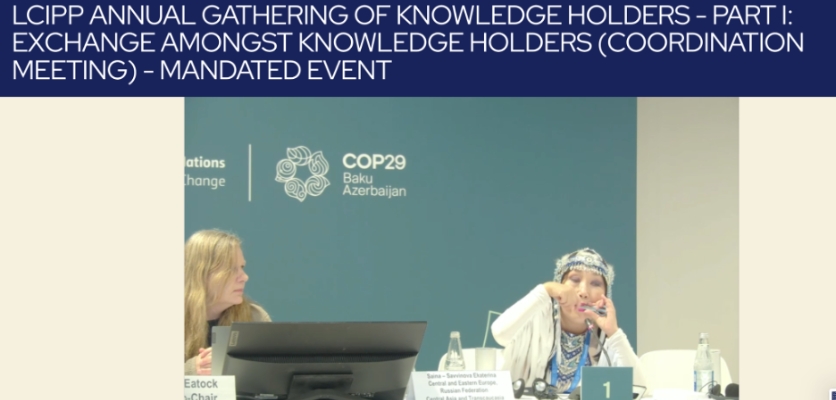
At the Local Communities Indigenous People’s platform, a Yakuts Indigenous person opens the ceremony with a heart-rending song and launches into an impassioned journey of her people and why we cannot let capital interests be its end. Across the room in a separate meeting, the Federación Nativa del Río Madre de Dios y Afluentes (FENAMAD) calls for protection of the Peruvian Forest and its Indigenous inhabitants. They weave nuanced scientific and intergenerational knowledge into diplomatic poetry, and, entranced by its beauty, we must not let this become the haunting call of a martyr. It is often difficult to maintain optimism in international fora such as COP, particularly in the face of unquestionable global violence, abuse and mistrust. But that does not mean that any of these stories lose their importance; rather, they become paramount. We cannot be atrophied by apathy or by global pessimism, and using empathy, listening and, most importantly, action will spur us together rather than tear us apart. The climate crisis is a human crisis, as Navajo leaders espouse—we are not a part of the land, we are the land.
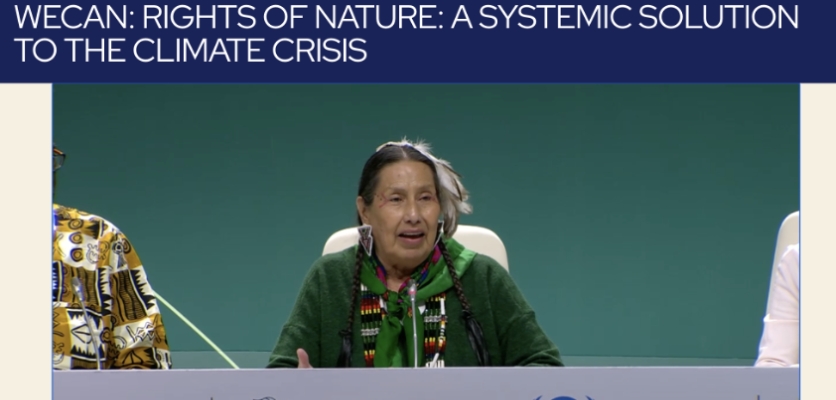
As I continue my research efforts with particular respect to Indigenous Peoples and non-traditional language access, maintaining optimism in the empty rooms during Indigenous discussions in Baku will be challenging. But even though I am scared, and we should all be scared, we cannot live in our fear. We have to confront it and construct better from it. Let us have the kindness to begin and the strength to be kind.
Ngā mihi nui.
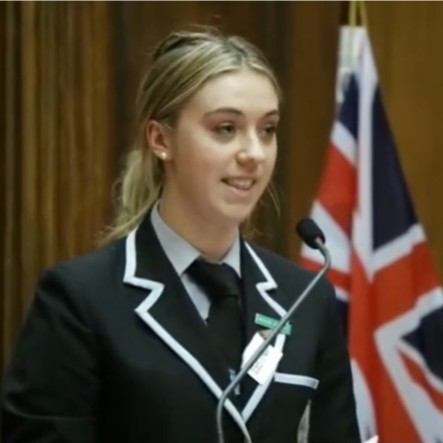
Tēnā koutou. Mia Perkins is a third-year undergraduate studying economics and international studies at Northwestern University. An international student from Aotearoa (New Zealand), her primary interests lie in incorporating Indigenous approaches to the environment as well as diversifying representation of linguistic and ethnic minorities at global fora. Perkins has studied at the University of Auckland, Sciences Po and the New School, and she is a Leopold Fellow, Sanders Scholar and Pritzker Law School Research Assistant at Northwestern. Motivated by improving ways of incorporating empathy into our academics, Perkins is interested in learning the ways in which COP acknowledges our humanity and our planet.

